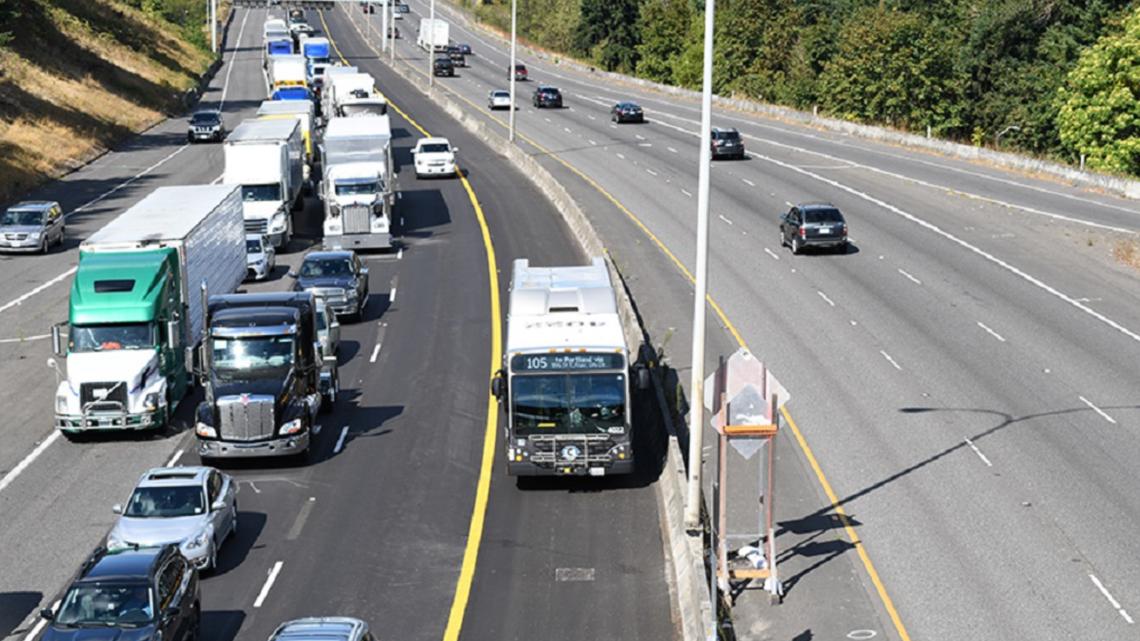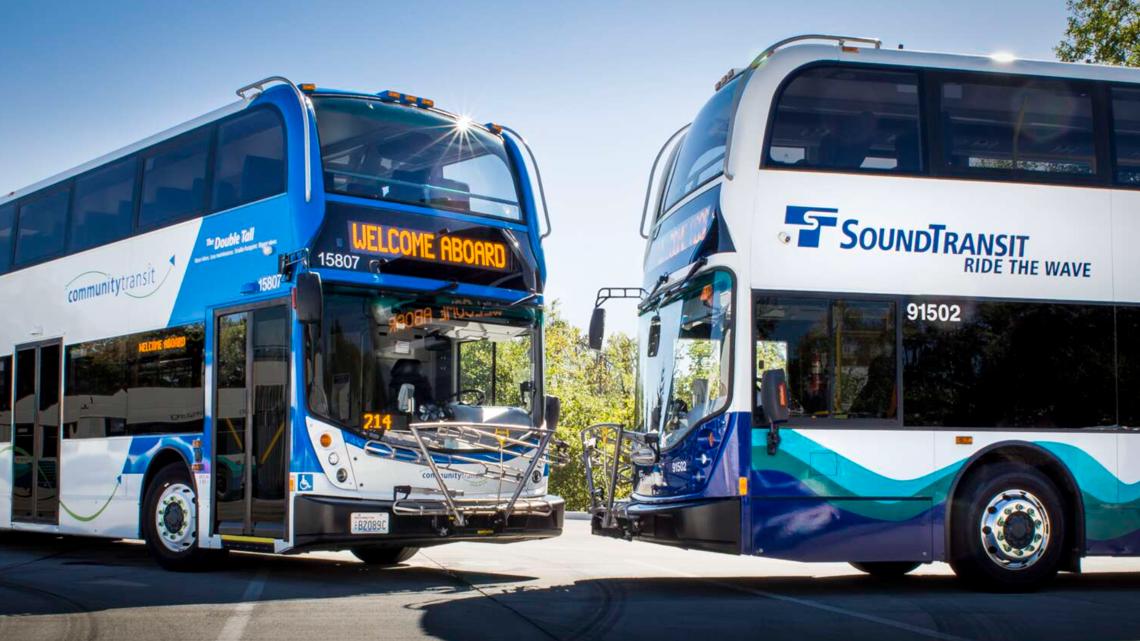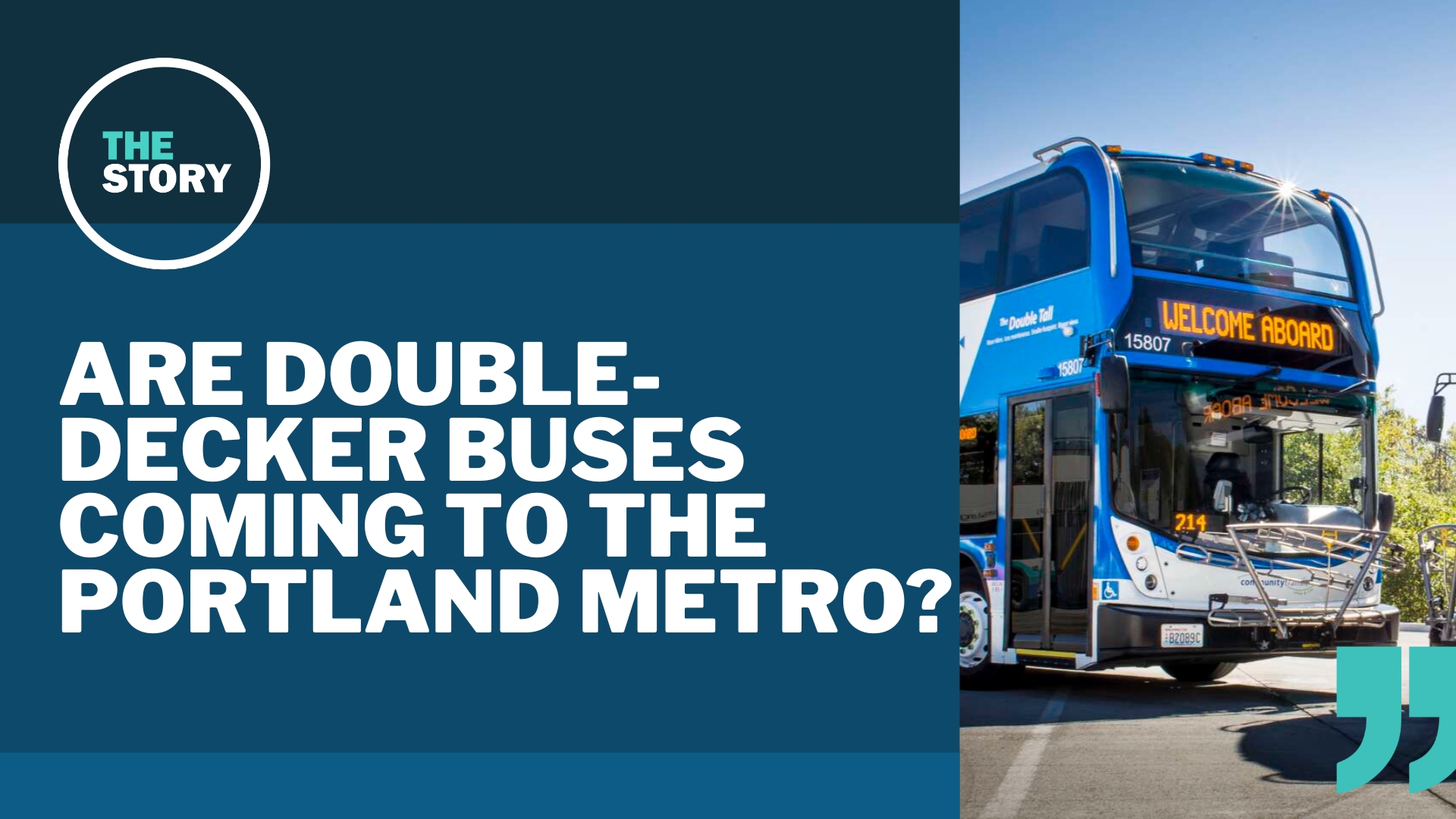VANCOUVER, Wash. — In addition to bringing light rail to Vancouver, the Interstate Bridge Replacement (IBR) project may also lead to the introduction of the Portland region's first-ever double-decker buses.
The replacement twin bridges will have wide shoulders that can double as bus lanes, extending a bus-on-shoulder corridor that C-TRAN currently uses on southbound Interstate 5 leading up to the bridge. At a C-TRAN board meeting earlier this month, IBR staff told the agency that their financial plan includes paying for new high-capacity buses to serve the corridor.
The tentative plan, first reported by Clark County Today, is for the eight new buses to be zero-emission and double-decker. C-TRAN confirmed the plan to KGW, but said the details could still change as the project gets further into the planning process.


The addition of double-decker buses would be a first for C-TRAN and likely for the entire Portland metro area. C-Tran and TriMet have both begun running 60-foot articulated or "bendy" buses in recent years on the Vine and FX2 lines, but neither agency has ever run double-deckers aside from a brief test drive.
Although common in cities like London and Dublin, double-decker buses are relatively rare in U.S. public transportation fleets — but that's begun to change, particularly in Washington State.
The Seattle region's Sound Transit and Snohomish County's Community Transit have both started running double-decker buses on certain routes in the past decade, and double-deckers are also planned to serve two of Sound Transit's three future Stride Bus Rapid Transit lines.


C-TRAN said additional details about the double-decker plan would be included in the IBR project's Draft Supplemental Environmental Impact Statement (SEIS), a deep-dive assessment of the program created as part of the federal environmental review process.
The release of the Draft SEIS — delayed several times and currently expected in the second half of September, according to IBR staff at the C-TRAN meeting — will kick off a 60-day public review period.
The $6 billion (or more) IBR project is tentatively planned to begin preliminary construction in late 2025 or early 2026, although in-water work in the river wouldn't begin until 2027.

